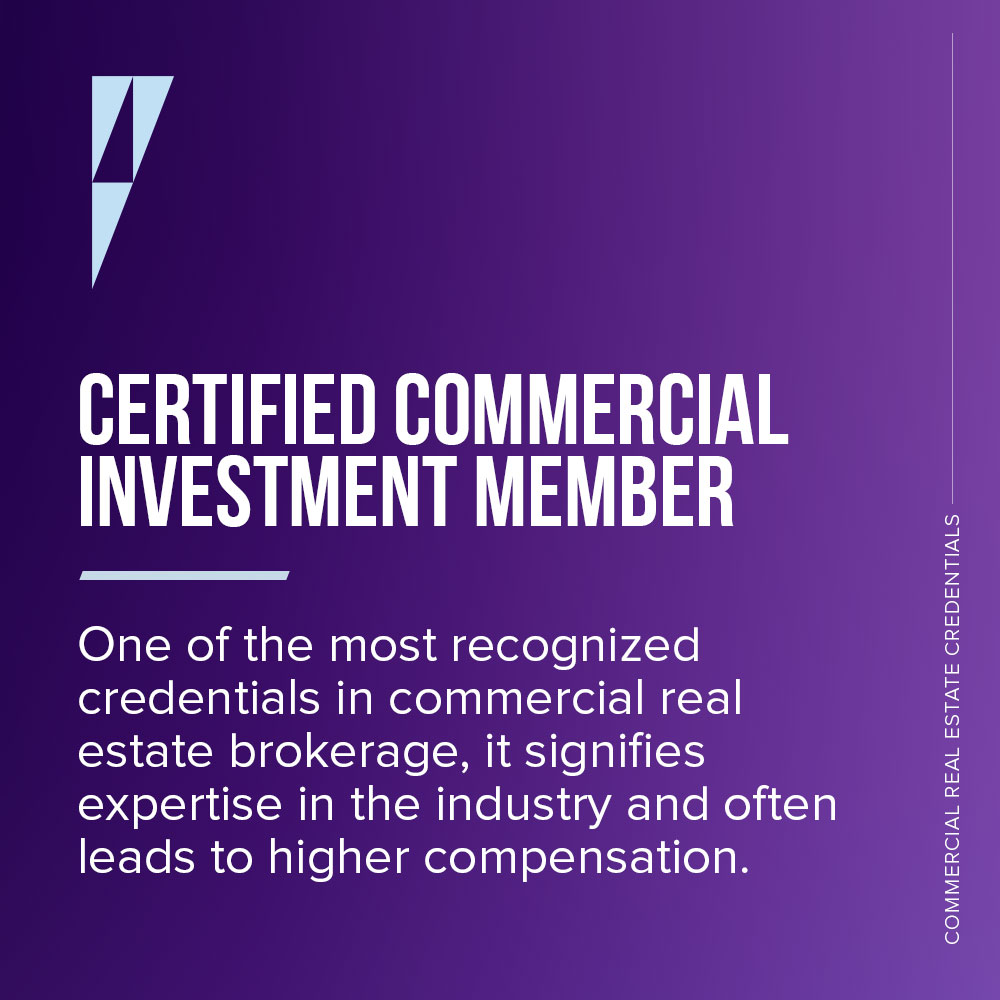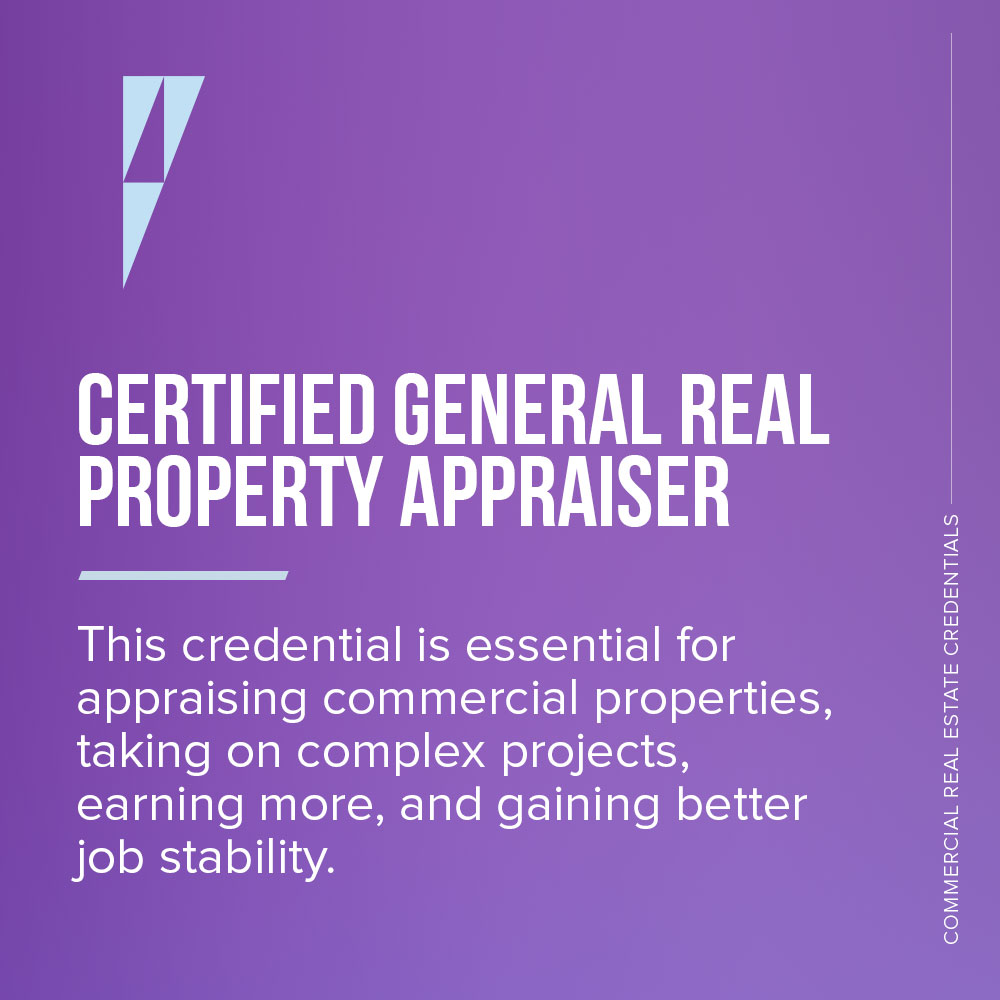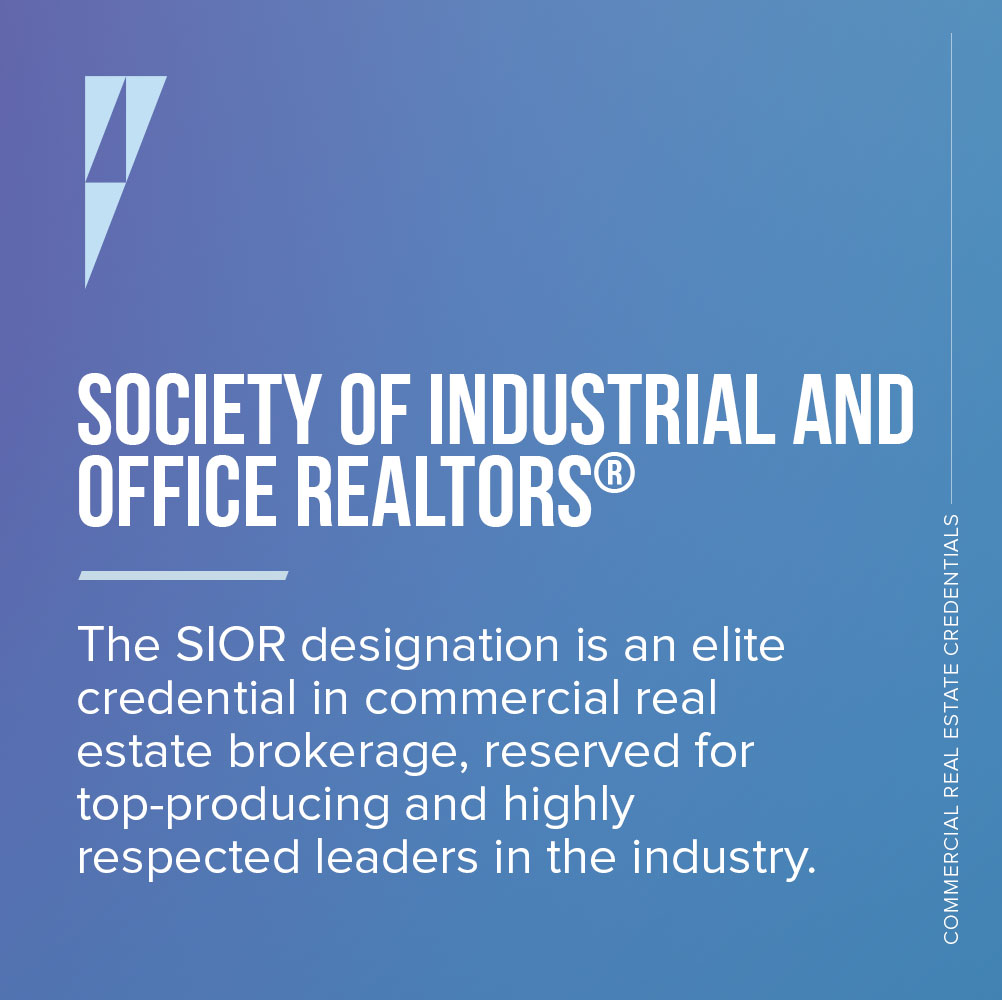Everything you need to know about commercial real estate credentials
Everything you need to know about commercial real estate credentials
Commercial real estate is one of the most diverse industries in business. Professionals can pursue various specialties, including brokerage, valuation, asset management, acquisitions and more. Credentials are an excellent way to specialize, gain credibility and distinguish yourself in the industry.
Here’s what you need to know.
What are some common commercial real estate credentials?

Certified Commercial Investment Member (CCIM)
This is one of the most recognized credentials in commercial real estate brokerage. Awarded by the CCIM Institute, it signifies expertise in the industry and often leads to higher compensation. Earning this credential also grants access to a network of other CCIMs, offering opportunities to connect and learn.
Complete a curriculum through the CCIM Institute focused on negotiations, analysis and ethics.
Have at least two years of industry experience and have a portfolio of work showing adequate volume and complexity of transactions appropriate for the designation..
Score at least 70% on a six-hour exam.

Certified General Real Property Appraiser
this credential is essential for appraisers who want to take on more complex projects and earn higher compensation than a traditional residential appraiser. This profession also enjoys better job stability. It is also required to appraise commercial properties.
Complete 300 education hours (specific requirements vary for those with trainee or residential appraiser licenses).
Hold a bachelor’s degree or higher.
Accumulate 3,000 hours of experience under a mentor appraiser over at least 30 months.
Pass the National Certified General Appraiser Exam.

Accredited Land Consultant (ALC)
This is the only land-focused credential on the list. ALC designees are experts in commercial land valuation and brokerage. According to the REALTORS® Land Institute, Accredited Land Consultants earn approximately $100,000 more annually than their non-credentialed peers.
Complete 104 hours of coursework through REALTORS® Land Institute’s LAND University.
Score at least 70% on an online exam.
Meet work and transaction volume experience requirements.
Maintain REALTOR® or Institute Affiliate Membership in good standing with the National Association of REALTORS®.
Provide two letters of recommendation from ALCs (one from a local market).
Submit a portfolio of work.

Certified Real Estate Brokerage Manager (CRB)
This designation is the highest achievement for managers in the commercial real estate brokerage space. CRB designees typically earn significantly higher incomes—the median gross income of a CRB is 146% higher than that of a non-CRB designee, according to the National Association of REALTORS®.
Complete four CRB courses.
Have at least one year of management experience.
Maintain membership with the National Association of REALTORS®.

Society of Industrial and Office REALTORS® (SIOR)
The SIOR designation is an elite credential in commercial real estate brokerage, reserved for top-producing and highly respected leaders in the industry. It is extremely exclusive, with only 3,000 members worldwide.
Meet experience and transaction volume requirements specific to your specialty.
Pass SIOR’s entrance and ethics exams.
Maintain membership with both the National Association of REALTORS® and SIOR.
Obtain endorsements from two active SIOR members in your chapter.

Member of the Appraisal Institute (MAI)
This is the premier credential in the commercial appraisal and valuation space, offering higher income, access to better project opportunities, and greater legitimacy for those starting their own appraisal practice.
Become a Certified General Real Estate Appraiser.
Hold a bachelor’s degree.
Pass several exams and meet additional requirements (details are available on the Appraisal Institute website).
Why should I acquire a credential in commercial real estate?
Earning one of these credentials enhances your credibility and career legitimacy. Because they require significant work experience and rigorous exams, companies and clients are more likely to trust you with complex projects. This can lead to promotions, leadership opportunities, and higher earning potential—sometimes by six figures compared to non-credentialed peers.
Additionally, if you decide to start your own appraisal or brokerage business, having credentials is essential to establish trust and prove your value as a real estate advisor.
How do I choose the right real estate credential?
Your choice depends on your specialization. Researching your options and speaking with peers in the industry can help you make an informed decision.
A good starting point is the National Association of REALTORS® website, which offers a list of many (though not all) real estate designations.




